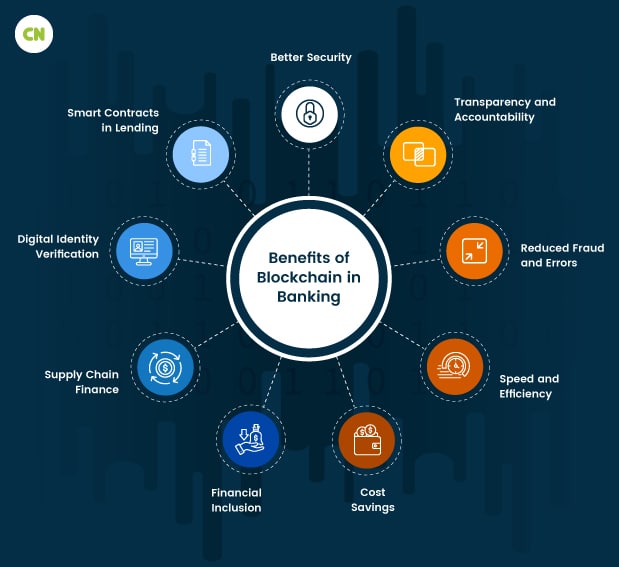Trust is a vital factor in the success of eCommerce. However, traditional online transactions face challenges such as lack of transparency and increased risks of fraud or hacking. To overcome these limitations, the revolutionary technology of blockchain has emerged as a potential solution. In this article, we will explore how blockchain can enhance trust in online transactions, thereby revolutionizing the eCommerce industry.
Understanding the Challenges in Online Transactions
Online transactions often suffer from a lack of transparency, which can make customers wary of purchasing products or services. Additionally, the risk of fraud and hacking poses significant threats in the eCommerce landscape, leading to negative customer experiences and impeding overall growth potential.
The Power of Blockchain Technology
Blockchain technology offers several features that can mitigate trust issues in online transactions. Firstly, the immutable and transparent ledger of blockchain ensures that all records are accurate and unalterable, enhancing the visibility and trustworthiness of eCommerce platforms. Secondly, the decentralized nature of blockchain, with its peer-to-peer networks, reduces reliance on centralized intermediaries and provides a more secure and tamper-proof system. Finally, through the use of smart contracts, blockchain enables secure agreements and automated transactions, minimizing the risk of disputes or fraudulent activities.
How blockchain benefits the eCommerce sector
Implementing blockchain technology in eCommerce can bring various advantages. Firstly, it can enhance transparency and traceability, addressing issues related to product authenticity. With blockchain, customers can verify the origin and journey of their purchases, ensuring they are getting genuine products. Additionally, blockchain enables trustworthy customer reviews and ratings, as feedback cannot be altered or manipulated. This enhances customer confidence in making informed purchasing decisions. Finally, blockchain can reduce payment disputes and chargebacks by providing a reliable and tamper-proof record of transactions, reducing the chances of fraudulent activities.
Real-World Examples of Blockchain in eCommerce
One notable example is VeChain, a blockchain-based solution that focuses on luxury goods authentication. Using VeChain’s technology, customers can track the entire supply chain of a product, ensuring its authenticity. This boosts customer trust, as they have complete visibility and certainty regarding the product’s origin and quality.

Image courtesy of blockgeeks.com via Google Images
Decentralized marketplaces and peer-to-peer eCommerce
OpenBazaar serves as an excellent example of a blockchain-powered marketplace. It operates on a decentralized network, eliminating the need for intermediaries. This allows buyers and sellers to engage directly, facilitating more secure and efficient transactions. Blockchain technology ensures that all transactions are recorded accurately and transparently, enhancing trust between participants.
Payment solutions and secure transactions
While blockchain is still evolving in the payment industry, companies like PayPal are already exploring its potential benefits. By integrating blockchain into their payment solutions, PayPal aims to achieve faster and more secure transactions. Blockchain’s decentralized nature and robust encryption allow for more seamless and trustworthy payments.
Challenges and Limitations of Implementing Blockchain in eCommerce
Despite its benefits, the implementation of blockchain in eCommerce faces certain challenges and limitations. Scalability is a significant concern, as the transactional nature of eCommerce requires a high level of throughput and efficiency. Additionally, the adoption of blockchain technology may face resistance from traditional eCommerce players who are comfortable with existing systems. Regulatory concerns and legal implications related to cryptocurrencies and smart contracts also need to be addressed.
The Future Outlook for Blockchain in eCommerce
The potential of blockchain in enhancing customer trust and loyalty in eCommerce is immense. As the technology matures, we can anticipate the development of new business models and opportunities that leverage the benefits of blockchain. Collaboration between blockchain developers and eCommerce businesses will play a crucial role in unlocking the full potential of this technology.

Image courtesy of www.capitalnumbers.com via Google Images
Conclusion
Blockchain technology holds immense promise in enhancing trust and security in online transactions within the eCommerce industry. With its transparent and decentralized nature, blockchain can address the challenges of transparency, fraud, and payment disputes. As businesses realize the potential benefits, it is important to explore the adoption of blockchain technology for a more secure and transparent online marketplace. We encourage eCommerce businesses to conduct further research and development in this field to secure the future of e-commerce.



